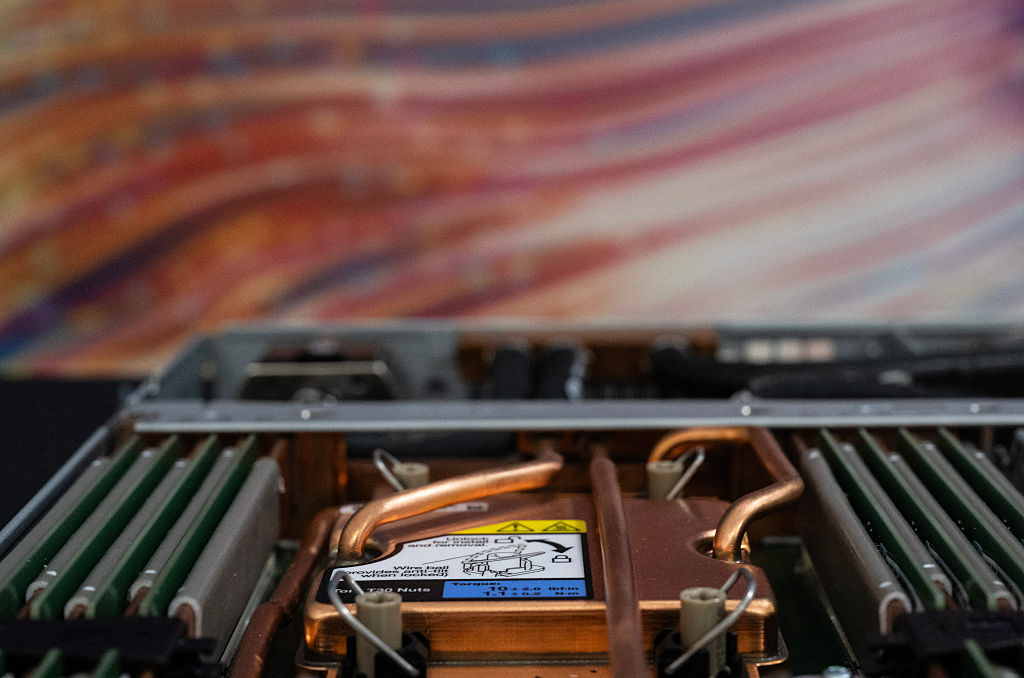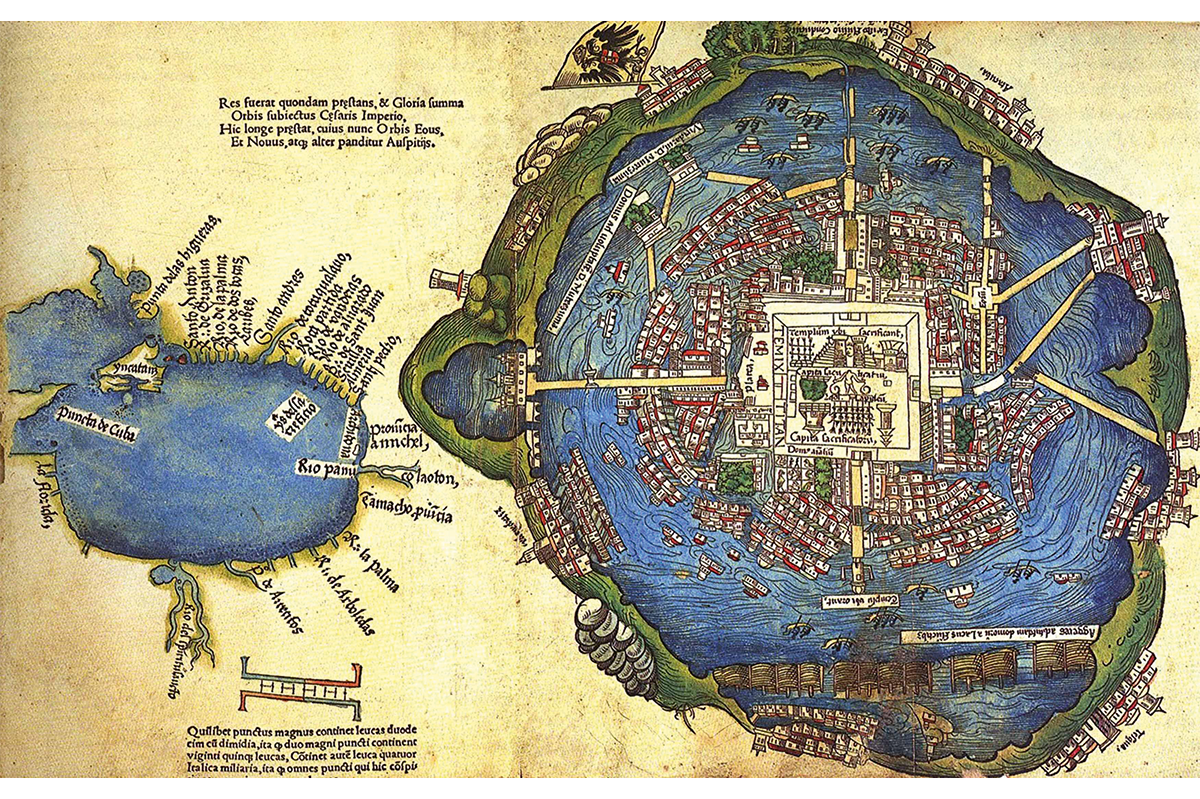Just 38 percent of Americans “support deploying US troops to defend Taiwan from a military attack by China” according to a Reuters/Ipsos released this week, with 42 percent opposing and 20 percent unsure. Vivek Ramaswamy, among the top contenders for the 2024 GOP nomination, also recently said that the US should only defend Taiwan until “we have semiconductor independence.” Add to this the Biden administration’s unwillingness to spend what is needed to build up the Taiwanese military and its failure to adequately support Ukraine — and anyone who values a safe, free, prosperous and stable world should be concerned.
Because defending Taiwan from a revanchist, imperialist and brutal Chinese Communist Party is at the heart of America’s national interest. Unlike America’s foe of yesteryear — the Soviet Union — China is economically powerful (even with the growing clouds on its horizon), is a manufacturing giant and is a much greater challenge to Washington in terms of pivotal technological advancements than the USSR ever was.
China, like most expansionist autocratic regimes, has basically broadcast its intentions for all the world to see. Xi has eschewed language referencing a peaceful reunification with Taiwan, instead building up China’s military presence illegally in the South China Sea. He has called, with Vladimir Putin, for a new world order to supersede the US-led system. And he has pursued a foreign policy of provocation, with the spy balloon, repeated high-profile and increasingly advanced hacking operations, the recent Arctic flotilla, and the constant military harassment of Taiwan being but a few examples. Beijing is also building a modern, powerful military with one goal in mind: challenge and dethrone the US. Xi does not need a fleet of aircraft carriers to protect the Chinese mainland — he wants them to project the CCP’s power abroad.
So China has the will and increasingly the means to take over Taiwan — but the question asked by many today is whether it’s worth defending the island. Consider what would happen if the US did not.
America would face a crisis of confidence from its allies. Despite the linguistic dances that US presidents do regarding strategic ambiguity, the fact of the matter is that everyone expects the US to step in on Taipei’s side. Failure to do so will force America’s allies — such as Japan, South Korea and the Europeans — to hedge their bets for their own security, potentially making concessions to China and cozying up to Beijing over the long run. That will mean less willingness for these countries to cooperate with the US. Though some criticize America’s allies for any number of reasons, allies are what underpin American strength. They allow the US to project power at lower cost — where the US would otherwise have to act alone, it has friends abroad who can either help or do things for Washington. In the event of a war with China, for example, American bases in Japan, South Korea and the Philippines would give the US a critical foothold in a region thousands of miles from North America. The Japanese navy — which is large, growing and modern — would also be a hugely important asset in holding off and eventually defeating any Chinese aggression.
Failure to fight for Taiwan could also spark a race for nuclear proliferation, with countries traditionally under the US nuclear umbrella seeking to possess their own weapons for lack of trust that America will defend them. More nuclear weapons states will lead to more brinkmanship, more opportunities for disastrous miscalculation and more willingness on the part of newly nuclearized countries to take risks independent of America’s concerns. For those concerned about a nuclear exchange over Ukraine, they should be particularly concerned about what a world where countries no longer trust the American nuclear umbrella would look like.
The issue of defending Taiwan has also gained a whole new dimension with the rise, over the past thirty years, of Taiwan’s vibrant democracy. A Chinese takeover without US intervention would strike at the heart of the post-World War Two global system that the US has painstakingly built and received such vast benefits from. Failure to defend a country that is both an ally in all but name and a model of Western democracy would be the death knell of America’s credibility. If the failure to live up to its commitments were not enough to make allies think twice about siding with America, this would do it.
The US cannot hide from the consequences of its failures behind a wall of water, either. Recent news about China’s expanding espionage and potentially military presence in Cuba, and its quickly growing influence elsewhere in Latin America, leaves little doubt that Beijing would not sit idly in its corner of the world. America’s economy — as with almost every country in the modern world — is also grounded in global trade, which would be under the People’s Liberation Army’s thumb after a CCP victory in Taiwan. Trillions of dollars worth of trade flow through the western Pacific — and China has shown its willingness to cut off countries it deems unfriendly (see Lithuania and Australia in recent years).
None of this means defending Taiwan will be easy: it would not be. China has invested heavily in its anti-access/area-denial capabilities, making it very difficult for Western forces to operate in the area during wartime conditions. The island democracy is also thousands of miles away from the US mainland, promising quite the logistical struggle. But defending Taiwan against Beijing’s aggression is certainly possible.
Successfully repelling a Chinese invasion will require that the US invest in its military the way it did in the Cold War — meaning well above 4 percent of GDP per year. At current levels, the services are having to cut critical capabilities and slow modernization. America should also make clear to Beijing that it will defend Taiwan; in other words, it is time to drop the myth of strategic ambiguity so that Xi Jinping knows unequivocally that he will face a fight. Further, Taiwan will need to be armed with asymmetric capabilities so that it can implement a porcupine defense strategy, where the island is bristling with defensive armaments, making any attack extremely costly. There is much more that needs to be done, but the point is that defending the island is achievable.
None of this matters, however, if America’s politicians fail to make the case for defending Taiwan. They cannot expect everyone to automatically know why defending a tiny island halfway around the world is in the country’s interest; but if they present the case, the American people will likely respond positively. It may not get the most soundbites, and it may not cause the most controversy, but explaining why it is critical for the US to protect Taiwan is one of the most important issues of the next decade, if not century.

























